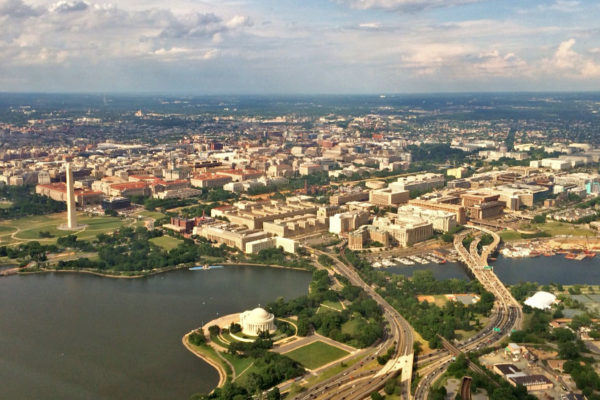A pair of commercial property tax hikes in D.C. may drive additional economic activity in Arlington, according to a new report.
Commercial real estate services firm JLL says higher commercial property taxes in the District — a 2.2% hike from $1.85 to $1.89 per $100 of assessed value — “will cause rent paid by office tenants to jump further, at a time when the market’s supply-demand paradigm strongly favors tenants.”
The report also says an approved 72% increase in the District’s deed transfer and recordation tax will cause commercial property sales activity to “grind to a halt in the mid- to long-term.”
The new taxes will take effect Oct. 1, at the beginning of D.C.’s new fiscal year, as part of a $15.5 billion budget that includes new investments in affordable housing.
Between D.C. making itself more expensive for commercial property owners and lessees, and the arrival of Amazon’s HQ2, JLL says conditions are ripe for increased economic activity in Northern Virginia and Arlington, in particular.
DC’s losses will be Northern Virginia’s gains. These tax hikes come at a time when Northern Virginia is heating up as an investment alternative to DC. Transaction costs were already substantially lower in Arlington County than in Washington, and now will be even more so. It is no stretch to say that this will attract capital away from DC and toward Arlington’s top-tier offerings, of which there will be many when HQ2-related demand spurs the development of new buildings and the lease-up of old ones.
Bisnow, which first reported on the study, quoted JLL Managing Director of Research John Sikaitis as saying the new dynamic could drive increased investment interest and office leasing in Arlington.
With the increased taxes on commercial property sales making deals harder to pencil in D.C., the JLL researchers expect investors will begin to look across the river. Northern Virginia has traditionally not been viewed as the same type of core market as D.C. in the eyes of outside investors, but an improving office market and expected growth from Amazon HQ2 has them taking a closer look.
“No one denies now that Arlington is a core market with a significant amount of future urban demand,” Sikaitis said. “You’re now seeing institutional investors start to look at Arlington from an investment perspective, which didn’t happen 12 or 24 months ago. Their allocation to D.C. could be allocated to Arlington.”


